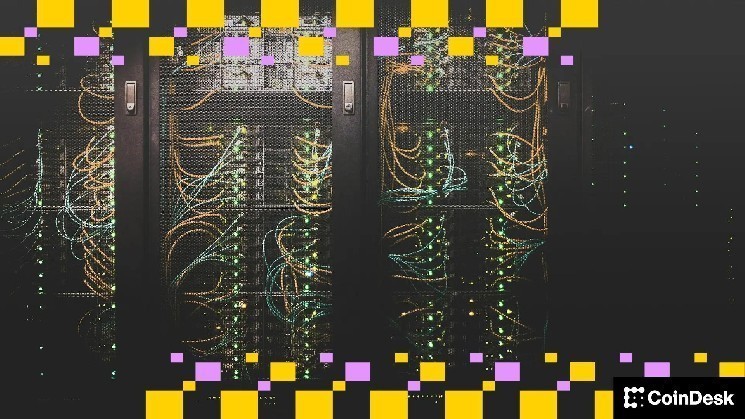TeraWulf Raises $575 Million Through Convertible Notes to Fund AI Infrastructure Expansion
Mining Company Continues Strategic Pivot from Bitcoin to AI Data Centers
In a significant move that underscores the evolving landscape of digital infrastructure, TeraWulf Inc. (WULF) announced plans to raise up to $575 million through a private placement of convertible senior notes. The fundraising initiative, revealed Wednesday, represents a pivotal step in the company’s strategic transition from traditional cryptocurrency mining operations to developing advanced infrastructure supporting artificial intelligence technologies. This capital infusion follows TeraWulf’s broader pattern of repositioning itself within the rapidly expanding AI computing sector, which has attracted substantial investment across the technology industry.
The private offering consists of $500 million in convertible senior notes scheduled to mature in 2032, with an additional option allowing qualified institutional buyers to purchase up to $75 million more. The company specified that these zero-coupon notes—which won’t pay regular interest—can be converted into cash, stock, or a combination of both at TeraWulf’s discretion. The notes carry a maturity date of May 1, 2032, providing the company with long-term financing flexibility as it executes its strategic transformation. This financial structure appears designed to minimize immediate cash flow impacts while giving TeraWulf access to substantial capital for its ambitious development plans.
Texas Data Center Project Signals Major AI Infrastructure Investment
The proceeds from this offering will primarily fund the construction of a state-of-the-art data center in Abernathy, Texas. Industry analysts view this development as a crucial component of TeraWulf’s recently announced $9.5 billion joint venture with cloud compute firm Fluidstack. The partnership aims to construct a 168-megawatt data center at TeraWulf’s Texas campus, representing one of the most significant AI infrastructure investments in the region. The scale of this project reflects the growing demand for high-capacity computing facilities capable of supporting sophisticated AI applications that require substantial processing power and energy resources.
Market response to the announcement was mixed, with TeraWulf shares declining approximately 5% in premarket trading Wednesday. This pullback followed a remarkable 17% surge in the company’s stock price the previous day, suggesting investors may be recalibrating expectations after the initial enthusiasm. The volatility highlights both the opportunities and challenges facing companies pivoting toward AI infrastructure, as market participants weigh the substantial capital requirements against potential future returns in this emerging sector. Despite the immediate share price reaction, the offering represents TeraWulf’s commitment to executing its strategic transformation with significant financial backing.
Google’s Financial Backing Strengthens Project Credibility
In a development that substantially enhances the project’s financial credibility, Google (GOOG) has committed to backing $1.3 billion of Fluidstack’s long-term lease obligations for the joint venture. This involvement by one of the world’s leading technology companies provides critical assurance to the project’s lenders, effectively leveraging Google’s robust balance sheet to secure more favorable terms. The arrangement demonstrates how established tech giants are increasingly supporting the development of specialized AI infrastructure through various financial mechanisms, rather than solely building their own facilities.
Financial analysts note that TeraWulf’s fundraising strategy shows remarkable consistency, coming just two months after the company successfully raised $850 million for its data center expansion initiatives. This pattern of successive capital raises totaling more than $1.4 billion in a short timeframe illustrates both the capital-intensive nature of AI infrastructure development and TeraWulf’s ability to attract significant investment despite market fluctuations. The company appears to be establishing itself as a significant player in the rapidly evolving AI infrastructure landscape, potentially positioning itself at the intersection of energy resources and computing capacity—two critical components for next-generation AI systems.
Strategic Pivot Reflects Broader Industry Transformation
TeraWulf’s strategic pivot from cryptocurrency mining to AI infrastructure development mirrors broader transformations occurring throughout the digital asset and computing industries. As bitcoin mining faces challenges related to energy consumption, regulatory scrutiny, and volatile cryptocurrency markets, forward-thinking companies are leveraging their expertise in managing large-scale, energy-intensive computing operations to capture opportunities in the burgeoning AI sector. This transition capitalizes on complementary technical requirements while potentially offering more stable revenue streams through long-term agreements with established technology partners.
The company’s evolution represents a case study in corporate adaptation to emerging technological paradigms. By repurposing its organizational capabilities toward AI infrastructure, TeraWulf is attempting to position itself at the forefront of what many industry observers consider the next major wave of computing innovation. The substantial capital commitments from investors and strategic partnerships with established technology firms suggest growing confidence in this strategic direction. As artificial intelligence applications continue to proliferate across industries, companies that can provide the essential infrastructure to support these computational demands may be well-positioned for sustained growth in the coming decades.
Industry Implications and Future Outlook
The scale of TeraWulf’s financial maneuvers signals the emergence of a new category of specialized infrastructure providers focused specifically on the unique requirements of artificial intelligence computing. With major technology companies increasingly outsourcing portions of their AI infrastructure needs, firms like TeraWulf that can develop and manage these facilities efficiently may establish valuable positions in the technology supply chain. This trend could reshape traditional relationships between technology developers and infrastructure providers, creating new opportunities for companies with expertise in energy management, data center operations, and large-scale computing deployments.
Looking ahead, industry experts anticipate continued expansion of AI infrastructure investments as applications requiring intensive computational resources proliferate. Companies capable of securing both capital and strategic partnerships appear particularly well-positioned to capitalize on this growth trajectory. For TeraWulf specifically, the successful execution of its Texas data center project and the performance of its financial instruments will serve as important indicators of its transformation progress. As the boundaries between cryptocurrency operations, data centers, and AI infrastructure continue to blur, market participants will closely monitor how companies like TeraWulf navigate this complex and rapidly evolving landscape. The convergence of massive capital requirements, cutting-edge technology, and strategic partnerships makes this sector one of the most dynamic areas of the digital economy.














